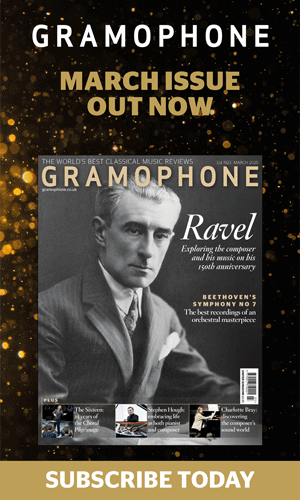Listening to stories just as the artist intended
Martin Cullingford, Gramophone Editor
Wednesday, December 8, 2021
From Philippe Jaroussky to Adele, why album order matters
One of the joys of the Gramophone podcast is the chance to hear at length, and in their own voice, exactly what artists feel about their recordings. In one of our more recent episodes, countertenor Philippe Jaroussky discussed his new and richly varied recital, ‘À sa guitare’, recorded with Thibaut Garcia (you can listen to it here). Talking about his album – which draws together songs from the Baroque era through to 20th-century chansons – he said: ‘Even if there is a big mix of styles, I would encourage people to start from the beginning and just to listen carefully to all the bridges, because I spent a lot of hours on that!’
Another podcast from last month featured Andrew Nethsingha discussing the new album from St John’s College, Cambridge, ‘The Tree’. There, even the title references the programme’s progressive growth, as if from a seed, from a lone treble in Hildegard von Bingen to the concluding gathering of 500 voices in a rousing hymn.
There’s nothing wrong with plucking out individual tracks from an album and listening in isolation, or weaving them into a playlist – in fact much enjoyment and opportunity for serendipity can be created by doing so, as we often find when building our playlists for Apple Music – but in so doing, the impact of the creative whole is in some ways lost, and the creator’s vision in assembling the entire programme missed.
And lest you think it’s just a matter for our specific musical genre, superstar singer Adele recently persuaded Spotify to remove the shuffle button from her new album so that the tracks play in the order she intended. ‘We don’t create albums with so much care and thought into our track listing for no reason,’ she told her 26.9 million followers on Twitter. ‘Our art tells a story and our stories should be listened to as we intended.’
Concerns about changing the order are less of an issue with complete classical works for the obvious reason that a symphony or opera played on shuffle doesn’t make much sense, so people generally don’t do it. But the point equally applies to hearing classical concept albums as envisaged – ‘art’ and ‘story’ are apt words – and it’s a happy reminder that the album format still means a lot to musicians today.
For more evidence, and ideas for exploration, look no further than our Critics’ Choice feature, in which we ask our reviewers and editorial staff to recommend one album from the past 12 months. If the Gramophone Awards represent a collective vote focused on sheer excellence, I like to think this ever-popular annual tradition simply celebrates sheer enjoyment. Here you’ll find a diverse selection of recordings, from perfectly programmed recitals such as Lea Desandre’s splendid ‘Amazone’ or Jodie Devos’s ‘And Love Said … ’, to works such as Bruckner’s Symphony No 4, or Mahler’s Seventh or Eighth Symphonies, the breaking up of any of which denies the listener the intended powerful journey.
I hope you enjoy exploring these recordings – I know our critics relish this opportunity to share their favourites with you! – and that they bring both delight and discovery to the celebratory season ahead. On which note, on behalf of everyone at Gramophone, may I wish all our readers a very Happy Christmas.
Gramophone's December 2021 issue is out now - details here







